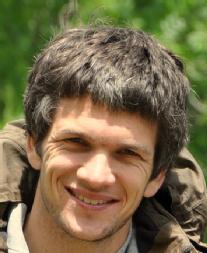Natural Resources
|
|
How did we come to think of nature as a resource? What can science and technology tell us about the value of natural things? How is the evaluation of nature bound up with empire, colonisation, and other kinds of control over nature? |
A crucial aspect of habitability is the supply of high-quality natural resources, from oxygen to soil to attractive landscapes. But what is a 'natural resource', and how do we determine their quality? These are questions of history, culture and value as well as being technical questions. The Habitability GRP integrates scientific approaches to the study of natural resources with those from global history, science studies, and the environmental humanities.
Research Activities
Nature Before Resources
Dr. Samir Baumediene is scheduled to visit Warwick in 2022 as a Fernandez Fellow, funded by the Institute for Advanced Study. The starting-point for the visit is that the phrase “natural resources” is widely used to refer to parts of the natural world that are useful to humans. Yet this phrase is barely a hundred years old, having emerged as a key term in environmental policy in Europe and North America early in the twentieth century. This raises the question of how nature was conceptualised before this time, both by Europeans and by their interlocutors. This research will look into precursors to the notion of natural resource with a view to identifying alternative ways of evaluating nature and to placing the evaluation of nature in its social, political and intellectual context. We will focus on the early modern period (1500 to 1800), when the growth of trade and empire brought people into contact with new forms of nature and when changes in science and technology furnished them with new modes of evaluation.
The Science of Quality
Bid for AHRC scoping funding, made in Spring 2020, in collaboration with the Innovative Manufacturing and Future Materials GRP. Science is usually seen in terms of production, in terms of the things it makes. But it is also a form of evaluation, a way of determining the quality of the food we drink, the air we breathe, the materials we build with, and much else. The sciences of quality, from analytical chemistry to food science, are bound up with questions of value that are also central to the humanities and social sciences. These sciences are becoming increasingly important in the twenty-first century, as science becomes ever more wedded to commercial and industrial applications, and as the global environmental crisis draws attention to the quality of natural substances such as air, water and soil. This bid drew together researchers in materials science, law, sociology, and history with a view to exploring the links between science and value in the past, present and future. Although the bid to the AHRC was not successful, follow-up events are planned for 2022 in collaboration with the Innovative Manufacturing and Future Materials GRP.
The geography of food in New Spain
José-Ricardo Aguilar-Gonzalez is completing a PhD in the History Department at the University of Warwick, as the Chancellor's International Scholar. He researches the history of food in colonial Mexico (New Spain), especially in the sixteenth and seventeenth centuries. He was awarded a Habitability grant for his research on the relationship between food cultures in New Spain and geographical features such as altitude, types of soil, and climate.
Related Webinars
Webinar: Islam and the Imagination of Life beyond Earth
Dr Jorg Matthias Determann, Associate Professor, Department of Liberal Arts & Sciences, Virginia Commonwealth University School of the Arts in Qatar
Despite the futuristic architecture of cities like Dubai and the fantastical tales of the Arabian Nights, the Muslim world is not commonly associated with science fiction. Religion, repression, and rote learning have often been blamed for a perceived lack of creativity, imagination and future-oriented thought. Nevertheless, even the most authoritarian Muslim-majority countries have produced highly imaginative accounts on one of the frontiers of knowledge: astrobiology, or the study of life in the universe.
Watch the recording here.


